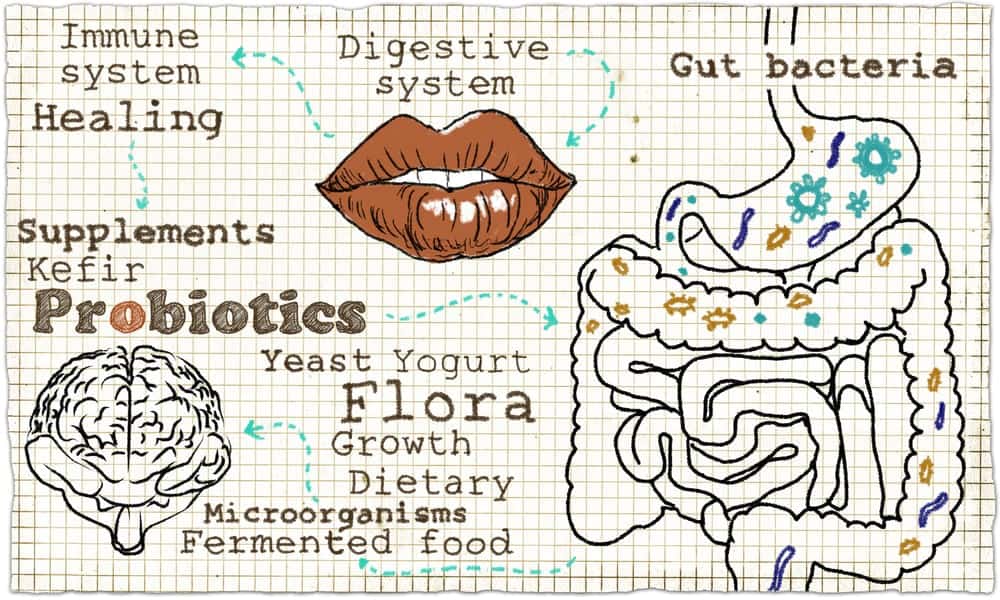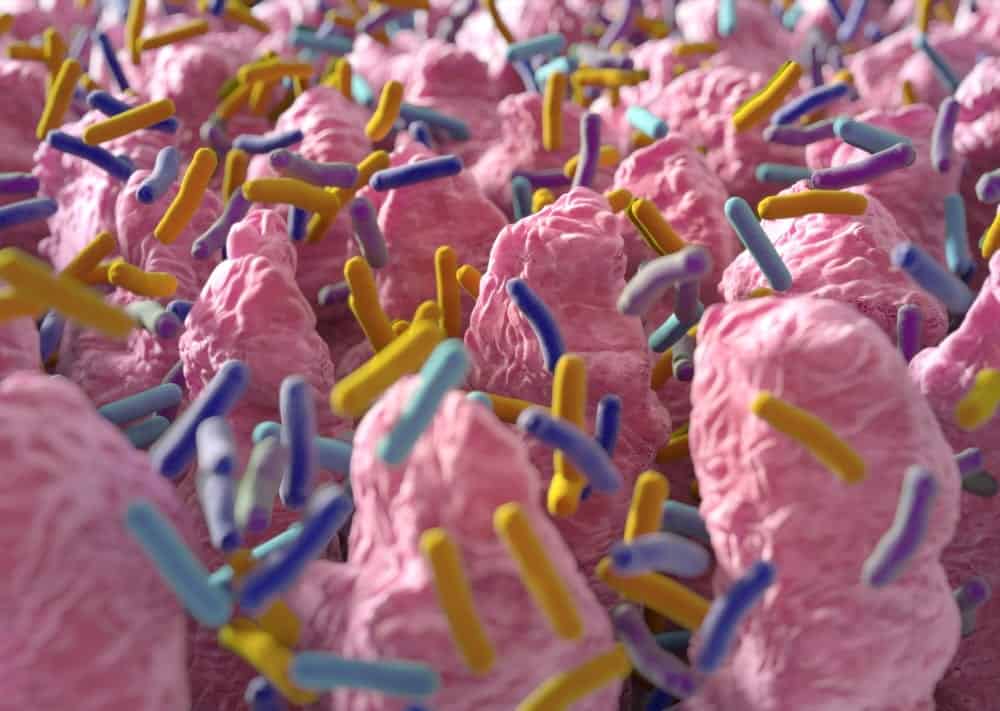
- Autism and gluten intolerance – what do genes say?
- High gluten intake during pregnancy linked to increased risks of diabetes in children
- Early disturbance of the microbiome and the rise in autism
- FDA-approved artificial sweeteners are toxic to gut bacteria
- PANDAS and the gut microbiome
Autism and gluten intolerance – what do genes say?
Did you know that most cells in your body have proteins known as human leukocyte antigens (HLA) on the surface?
Put (very) simply, HLA act as flagpoles on the cell’s surface and ‘present’ small pieces of protein to the immune system.
If the immune system identifies these protein fragments as foreign, it will trigger a reaction to prevent the foreign protein from damaging the body.
HLA genes, autism, and gluten intolerance
HLA genes have hundreds of versions (or alleles), but research has identified 2 main classes of HLA which present antigens to the immune system: HLA Class I and HLA Class II.
In a recent study, French scientists investigated the differences in the distribution of the HLA Class II alleles between healthy subjects and ASD patients. They also studied differences in the genetic makeup and characteristics of the HLA Class II alleles in the two groups.
Compared to healthy individuals, ASD patients are more likely to carry the HLA gene with the HLA-DRB1 *11-DQB1*07 structure, which increases the risks of celiac disease.
This could explain why many individuals with ASD and those with celiac disease suffer from similar gastrointestinal issues, have increased intestinal permeability and an unbalanced gut flora.
Results from this study support the use of a gluten-free diet to help relieve some of the symptoms of ASD.
High gluten intake during pregnancy linked to increased risks of diabetes in children
Although more research is needed, a recent study suggests that maternal gluten consumption during pregnancy could increase the child’s risk of type 1 diabetes.
Findings from this study also suggest that:
- The risk of type 1 diabetes in the children increases proportionally per 10g/day increased gluten intake.
- Over an average follow-up period of 15.6 years, children of women who consumed at least 20g of gluten per day had twice the risks of developing type 1 diabetes compared to children of women whose daily gluten intake was less than 7g.
- Older, overweight or obese women, and those who had given birth more than once were likely to be more sensitive to gluten due to increased inflammation or increased intestinal permeability.
Since celiac disease and type 1 diabetes “share” some HLA genes, pregnant women or those intending to conceive may want to consider swapping gluten-containing foods (such as wheat, rye, spelt, and barley) for other gluten-free nutritious foods.
Early disturbance of the microbiome and the rise in autism
A paper reviewing the implications of the disruption of the bacterial microbiome in autism was published in August this year.
Take-home “gems”:
- Since gut microbes are involved in the production of many vitamins, they influence the overall antioxidant status. Glutathione, the body’s chief antioxidant agent is severely depleted in autism.
- Gastrointestinal complications are common in ASD and could be caused by increased intestinal permeability, inflammation, and an unhealthy gut microbiome.
- Individuals with ASD have more firmicutes than bacteroidetes – the ratio of these bacteria can influence the severity of autistic symptoms.
- Antibiotics can decrease the body’s ability to absorb iron, produce proteins, and digest certain foods. This can further increase the risks of inflammation, autoimmune issues, and gastrointestinal distress.
- An unbalanced gut flora can lead to many cognitive issues associated with ASD since about 90% of serotonin is produced in the gut.
- Some antibiotics can prevent mitochondria, the cell’s energy-producing generator, from working properly and thus, impairs brain development.
To keep their microbiome healthy, individuals with ASD may want to (i) support their digestion and gut health, (ii) try an anti-inflammatory diet, and (iii) avoid using antibiotics except when imperative.
FDA-approved artificial sweeteners are toxic to gut bacteria
What do as aspartame, sucralose, saccharine, neotame, advantame and acesulfame potassium-k have in common?
Yes, they’re FDA-approved artificial sweeteners. But they’re also toxic to the gut microbiome.
In a study published in September, scientists found that gut bacteria became toxic when exposed to concentrations of only one mg/ml of the artificial sweeteners. It appears that the artificial sweeteners damage the membranes of the bacterial cells.
What you can do about it: Read labels on the foods and drinks that you buy, especially if you consume energy drinks – you may be unconsciously consuming artificial sweeteners.
Avoiding these products may not only help preserve your microbiome’s integrity but will also help protect the environment. The sweeteners contaminate drinking and surface water, and groundwater aquifers.
“PANDAS” is the acronym for pediatric autoimmune neuropsychiatric disorders associated with streptococcal infections.
It refers to a form of obsessive-compulsive disorder with symptoms such as tics, frequent urination, and rigid or repetitive behaviors caused by a streptococcal infection. These behaviors may increase sleep disturbances and mood disorders in children.
A new study shows that streptococcal infections modify the composition of the gut microbiome by favoring the growth of certain bacterial species. This, in turn, promotes inflammation in PANDAS patients.
In the study, scientists analyzed the gut of 30 PANDAS patients and compared them with 70 healthy individuals. They found that, regardless of age, the PANDAS patients had a less diverse gut flora compared to healthy individuals.
Moreover, younger PANDAS patients showed a decrease in short-chain fatty acids, D-alanine, tyrosine and dopamine pathways involved in some neuronal functions. These patients also had a lack of anti-inflammatory elements like unsaturated fatty acids and dioxin degradation.
Conversely, the healthy individuals had increased D-alanine metabolism and higher concentrations of Roseburia bacteria which help preserve the gut function. These bacteria promote the production of butyrate, a type of fatty acid that helps the gut function effectively.
More research is needed to better understand the role of the gut’s microbes to assess the disease and how to adapt treatment to the patient’s needs.







